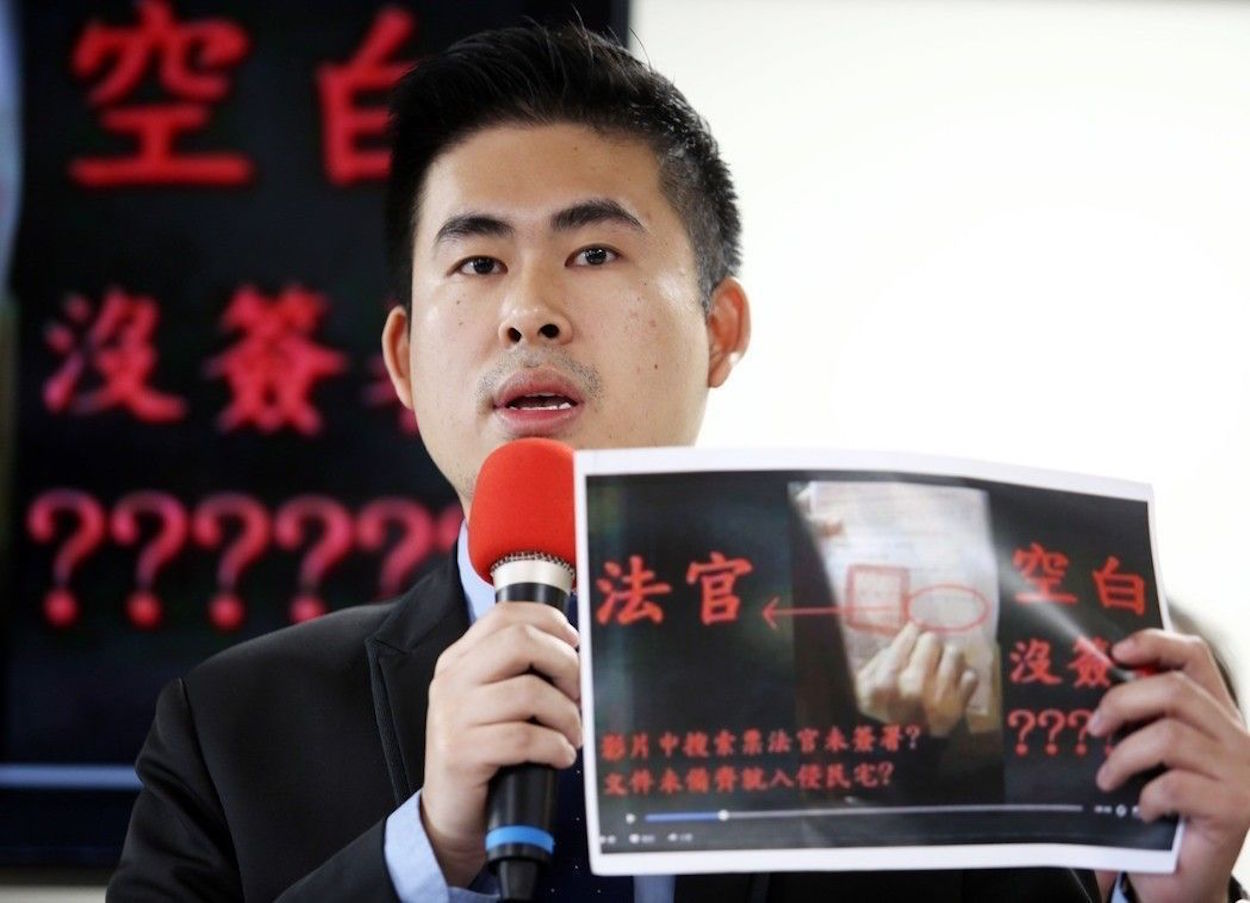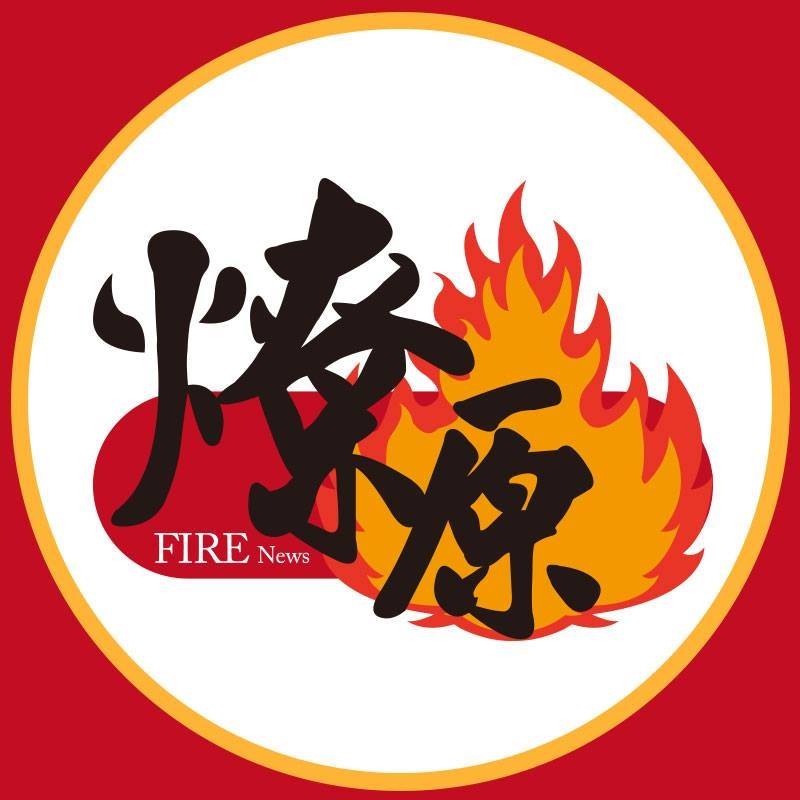by Brian Hioe
語言:
English
Photo Credit: UDN
COMMENTS BY Wang Ping-Chung (王炳忠) of the New Party in an op-ed submitted by Wang to a Chinese state-run media outlet, the Global Times, have provoked outrage, due to Wang stating outright in the op-ed that “China cannot wait for unification.” However, the continued fallout over charges facing Wang and other New Party members of operating an online news outlet at China’s behest have also led to some fears of Chinese attempts to undermine Taiwan’s government through the Internet which are, in fact, somewhat irrational. To this extent, we might examine the substance of Wang’s comments.
It is not surprising why Wang’s comments would provoke outrage, since if Wang calls on China not to wait around to achieve unification, this means that Wang is calling for something like an immediate military attack on Taiwan by China. Specifically, Wang’s comments were made in the context of claiming that after the DPP had taken office, that support of Taiwanese independence has dropped, as well as claiming that at the same time, the DPP was attempting to monopolize freedom of speech within Taiwan and that this was a sign of the DPP’s desperation. Though somewhat contradictory to such statements, Wang also claimed in the interview that views in support of Taiwanese independence or independent Taiwanese identity would continue to spread if not checked, unless an attractive discourse in favor of unification was established to lure in Taiwanese.
 Wang and other New Party members at a press conference. Photo credit: Wang Ping-Chung/Facebook
Wang and other New Party members at a press conference. Photo credit: Wang Ping-Chung/Facebook
In examination of his comments, one wonders what Wang is hoping to achieve. Speaking from the standpoint of China or pro-unification forces in Taiwan, Wang is not incorrect in stating that China has little hope of winning over Taiwan unless it can establish an attractive discourse in favor of unification. Yet Wang’s comments also strike as attempting to create a fictive depiction of Taiwan along the lines of China’s wishful thinking.
To begin with, many in China are altogether too willing to accept spurious and altogether false claims by Wang and other New Party members that the DPP is not acting too differently from the CCP in persecuting dissident political views. Namely, this would seem to take the luster off of any moral superiority that Taiwan can claim over China by virtue of being a democratic country with freedom of speech, which China decidedly is not.
And many in China may prefer to cling to the belief that Taiwanese young people and other social groups have given up on dreams of independence, that unification is increasingly likely for Taiwan because Taiwanese have seen the light and realized that unification is not only desirable but necessary. This is far easier to confront than the reality that, whatever difficulties Taiwan may have in achieving de jure independence or recognition by the international community as an independent nation-state, Taiwan is already de facto independent and has little interest in giving up its democratic freedoms for unification with China.
But, in general, Wang and other New Party members who are currently under scrutiny for treason by the government, may primarily hope to siphon resources from China for their personal benefit. Much of the messaging of Wang and other New Party members seems primarily directed towards China and not Taiwan, in order to present themselves as the fresh young faces of the pro-unification camp that China should support against the Sunflower generation.
 Wang holding a photo at a press conference questioning police’s original lack of a warrant when they first tried to search his home, before police later returned with a warrant. Photo credit: UDN
Wang holding a photo at a press conference questioning police’s original lack of a warrant when they first tried to search his home, before police later returned with a warrant. Photo credit: UDN
Again, Wang and three other members of the New Party stand accused of being paid by China to run the Fire News (燎原新聞網) website to disseminate pro-China views in Taiwan, with the hopes of building a spy network for Taiwan or even a paramilitary organization in Taiwan through this. Reportedly, Wang was paid 15 million NTD per year to operate the website in question. Moreover, with the intention of building contacts in Taiwan, China reportedly paid Wang and cohort 3,000 NTD for every person who “liked” Fire News’ Facebook page and “liked” more than 70% of the posts on the page, 5,000 NTD for having interactions every two weeks with a follower of Fire News, 10,000 NTD for holding offline meetings with contacts, and 50,000 NTD for meetings in which contacts opened up about their personal feelings or political views. Wang and other New Party members stand accused of working with Zhou Hongxu (周泓旭), a Chinese student studying in Taiwan arrested for spying in September, on this project.
The ineffectiveness of China sinking such vast resources on a little read news website which only had 6,000 “likes” on Facebook after three years of operation aside, perhaps Wang and company simply wish for attention from China and opportunistically siphon off resources from China for their own gain, then. It is a classic issue that, in the field of espionage, one always faces difficulty distinguishing valuable informants or agents from frauds, particularly when one dangles the promise of lucrative financial rewards in front of one’s agents in return for their services.
This may be the case with Wang, seeing as Wang generally seemed to present what China wanted to see, rather than carrying out what actions that would actually be effective in winning Taiwanese over to pro-unification views, or making accurate assessments about the state of Taiwanese politics for a Chinese audience. Generally, in examination of the state of China’s intelligence gathering on China, it oftentimes seemed hampered by rosiness about reversals in Taiwan’s circumstances leading it towards pro-unification views rather than a realistic assessment of the political situation in Taiwan.
However, it is not surprising that Wang’s comments have led anger in Taiwan, seeing as Wang is willing to call on China to take actions to achieve unification which would results in the deaths of thousands of Taiwanese and the loss of Taiwan’s democratic freedom. Moreover, while some in Taiwan, wary of Taiwan’s past as a police state—a healthy impulse for an only recently post-authoritarian society—were angered by police initially detaining Wang without clear cause, much of society now tires of Wang continually claiming that he is facing political persecution reminiscent of the authoritarian period when he was only detained briefly by police then released.
 Fire News logo. Photo credit: Fire News
Fire News logo. Photo credit: Fire News
And despite facing charges of treason for spying on behalf of China, Taiwanese police have left him with enough freedom apparently that they did not prevent him from speaking with Chinese state-run media outlet Global Times. It is incredibly ironic that Wang claimed in this op-ed that the DPP was restricting freedom of speech in Taiwan regarding pro-unification views when this seems to be proof to the contrary, if Wang continues to be allowed the freedom of speech to write for state-run media outlets run by the very same government he is accused of spying for.
Nevertheless, the overall scandal has not prevented some amount of paranoia that the New Party scandal represents dangerous new efforts by China to undermine Taiwanese democracy using the Internet, by engaging in “hybrid warfare”, and using sophisticated digital warfare to spread false information in Taiwan or manipulate public opinion through “fake news” outlets such as Fire News. But while this is a threat Taiwan may need to be on its guard for in the future, at the very least, the New Party scandal seems to represent more than anything else how inadequate Chinese attempts to manipulate public opinion are, if Wang Ping-Chung is the best they can do.
Perhaps more serious efforts on the part of China take place elsewhere. But the Wang Ping-Chung scandal, and that members of the public have looked at the events with critical perspectives in questioning his detention but later accepting that charges of treason may have validity, demonstrates that Taiwanese have the critical thinking skills which do not allow Taiwanese public opinion to be manipulated so easily by China or other political actors, including domestic political forces within Taiwan. And so perhaps this should be reassuring more than anything else.

